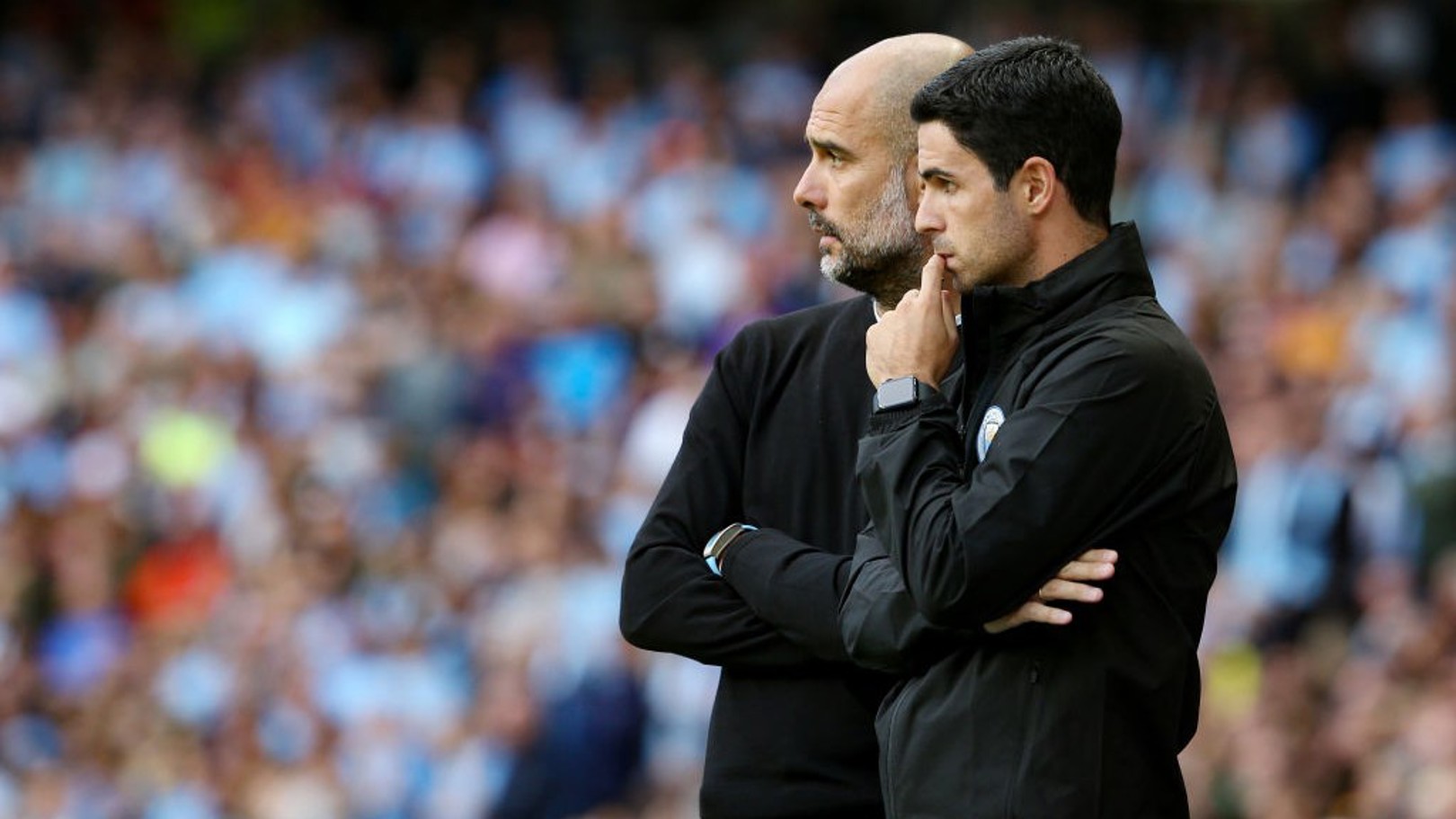City face Shakhtar Donetsk in our Group C opener on Wednesday evening and our domestic domination over the last two seasons sees us ranked amongst the favourites for Europe’s top prize.
READ | Zinchenko: Mendy return a big boost
WATCH | Training: City prepare for Shakhtar test
A two-time winner as a manager, Guardiola is yet to take City beyond the quarter-final stage but Arteta feels the support of the Club’s owners and board members is close to reaping its reward.
“Sheikh Mansour, Khaldoon Al Mubarak, Ferran Soriano and Txiki Begiristain brought Pep here to create something unique that hasn’t been done in England,” he explained.
“They brought him here to try to bring home the Champions League with a very particularly way of playing football.
“The first season was tough and the big investment [they made] was that they really believed in why they brought him here.
“They had the idea that this could be done and the biggest statement from the Club was that they supported him for the second year to try and create this today.
“The rest will come. It isn’t easy to win the Champions League, but I think we are close.”
City’s superiority in the Premier League has been based on a total domination of possession, which creates a host of chances whilst simultaneously reducing the opposition’s attacking threat.
It gives Guardiola’s side significant control over a 38-game season, but knockout football is a different proposition.
Both the City boss and his assistant coach know this.
Last season’s agonising quarter-final defeat to Tottenham Hotspur was a stark reminder of the unpredictability of cup competitions and Arteta admits that uncertainty is a challenge for coaches.
“The mental preparation for those moments is really important,” he added.
“You can talk about it and try to coach but it can still come to a moment like a penalty and if you score you win the Carabao Cup and if you don’t score, you don’t win it.
“Somebody can make a mistake and it’s how you react. There are many things that are involved in one competition that is so short.
“We try to minimise the risk and uncertainties, but it is sport and there are uncertainties that we cannot control.”








